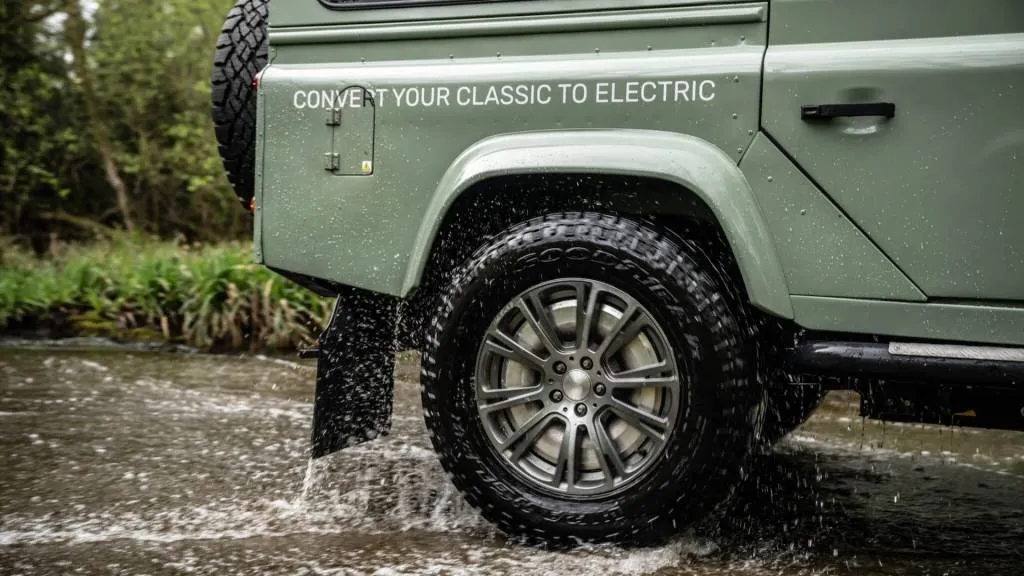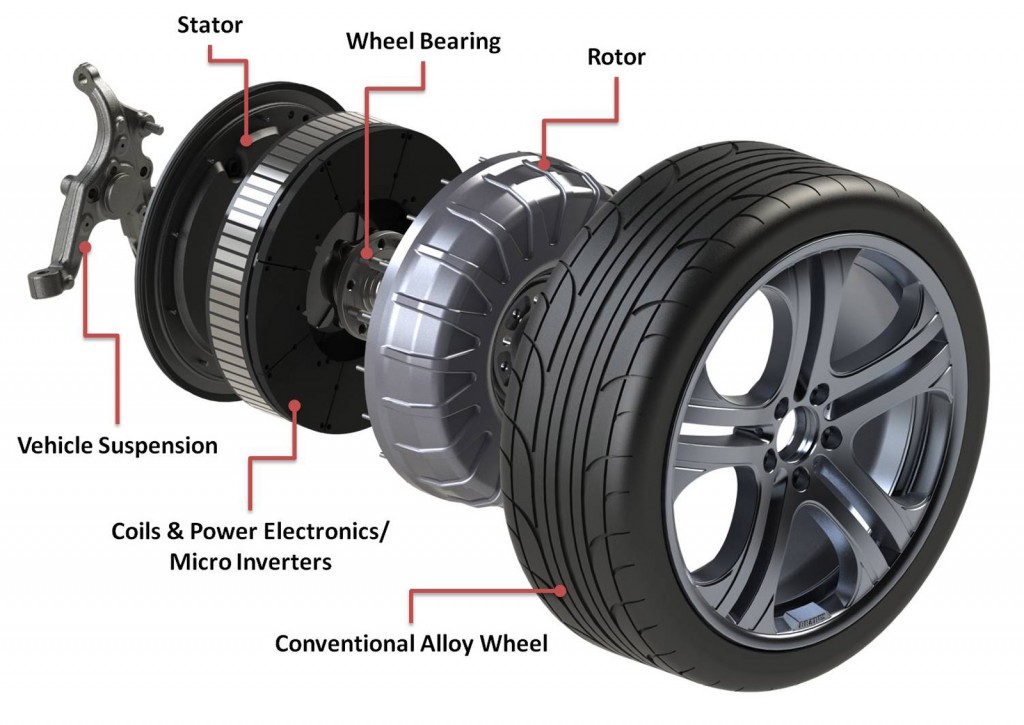U.K.-based Bedeo is launching a Land Rover Defender EV conversion based around in-wheel motors from Bedeo-owned Protean Electric.
The Defender is the first in a series of “Reborn Electric: Icons” conversions, according to a Bedeo press release. The program will expand the company beyond its current business of electric van conversions to the burgeoning cottage industry of electrified classic cars—and, perhaps, to more contracts to supply its in-wheel motor tech.

Land Rover Defender EV conversion by Protean
The first completed Defender EV has a 75-kwh battery pack affording 153 miles of WLTP range—likely in the vicinity of just 110 to 125 miles if it were to be run in EPA-cycle tests. A standard 22-kw AC onboard charger can recharge the pack in an estimated five hours, while optional DC fast charging can do the same in 90 minutes (likely less time for the more typical 80% charge).
Bedeo claims it’s “committed” to maintaining the original curb weight and driving dynamics with each of these builds, achieved in part through “the advantages of weight reduction and engineering enhancements” of in-wheel motors. The company didn’t reveal the curb weight of this example.
While numerous companies and DIYers are already converting older internal-combustion vehicles to electric power, Bedeo also claims to be the first to use in-wheel motors in such a conversion.

Protean in-wheel electric motor
Protean has had a production in-wheel motor for more than a decade. Prior to its current U.K. ownership, the now-defunct Chinese-funded automaker NEVS, which had been reworking some of Saab’s assets, bought Protean in 2019.
Since then, Dongfeng, a Chinese automaker with a Volkswagen joint venture, has sourced Protean motors for its Fengshen E70 sedan. Dongfeng claims to have the world’s first passenger car to be homologated for sale with in-wheel motors, but the Lordstown Endurance pickup truck previously used them as well, sourced from Elaphe. Very few Endurance trucks were built, however.

